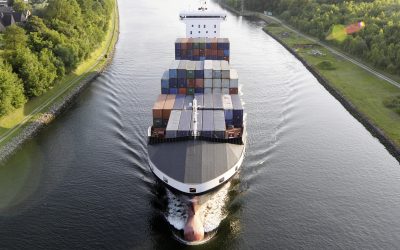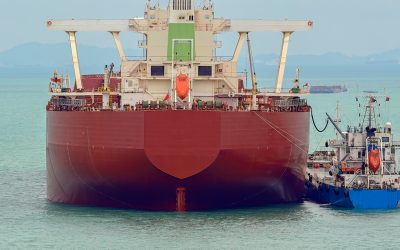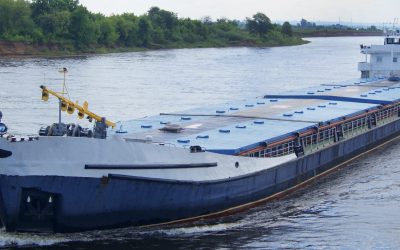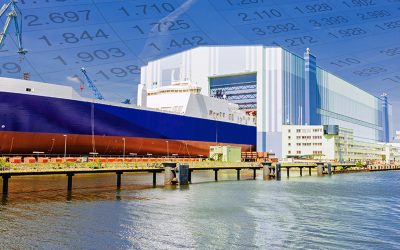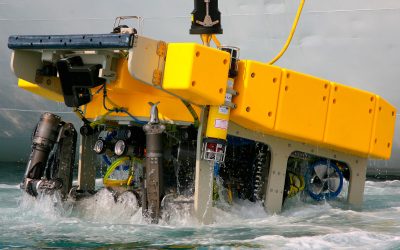

Capt. Runa Jörgens
Head of Issues and Projects/Shipping
Phone: +49 40 9999 698 - 71
E-Mail: Joergens[at]dmz-maritim.de
Introduction
In Europe, Regulation (EU) No. 1257/2013, which entered into force on 20 November 2013, regulates the sustainable dismantling of ships. It came into force at the end of 2013 and will be fully applicable from 31 December 2020. The Hong Kong Convention of the International Maritime Organisation (IMO) will enter into force on 26 June 2025. The Convention regulates the safe and environmentally sound recycling of ships and is mandatory for ship recycling facilities worldwide.
In addition to the increasing demands on ship recycling yards, the legal requirements for the operation of a ship are becoming more stringent regarding environmental protection and energy efficiency. The extended operation time of vessels (especially of older ships) is subject to constant review regarding its economic viability. If this is no longer the case according to the shipowner’s criteria, the ship is scrapped. In the context of increasing environmental protection requirements for the global fleet, it can be assumed that recycling tonnage will increase worldwide.
The majority of tonnage is currently scrapped and recycled in shipbreaking yards in South and South-East Asia (India, Bangladesh, Pakistan). To a much lesser extent, tonnage is processed in dismantling facilities in the People’s Republic of China, the USA and Turkey. The European Union also has many shipbreaking facilities, but these account for the smallest share of world tonnage.
The coalition agreement of the current German government explicitly mentions the promotion of ship recycling in Germany as an objective. Given the expected global demand for ship dismantling capacity and the current lack of ship dismantling facilities in Germany, the economic potential and criteria for potential German ship dismantling facilities need to be analysed.
The study
For these reasons, the German Maritime Centre has commissioned Inros Lackner SE to carry out a study to analyse the market environment for sustainable ship recycling in Europe focusing on the potential of ship recycling yards in Germany.
The study defines the term “sustainable ship recycling” according to regional and international regulations and presents the business model of ship recycling using the Business Model Canvas.
Key Finidings
The study presents the market potential for ship recycling yards in Europe by ship type or ship category. This includes, for example, the increasing demand for so-called green/recycled steel scrap. Relevant key figures from databases on ship recycling over the last five years are presented and interpreted in charts. The study focuses on the legal, financial and local barriers to market entry. The study concludes with recommendations for the promotion of sustainable ship recycling in Germany for industry, politics and administration.
Market entry barriers in Germany
The study concludes that there are several barriers to market entry for sustainable ship recycling in Germany. The legal framework for the material permit requirements for a ship recycling yard is unclear. Ship recycling yards are considered “stationary waste disposal facilities”. The size of the ship and the amount of materials and hazardous substances contained in it are decisive for their approval according to § 4 of the Federal Immission Control Act (BImSchG). These are always variable due to the type, size and composition of the materials used in the construction of the ship. It is difficult for a ship recycling yard to obtain a permit under the licensing regulations for waste disposal facilities due to the high variability of the ships to be dismantled. A separate permit exclusively for ship recycling yards does not exist at present.
The responsibility for the approval of a ship recycling plan and the type of approval has not been clarified in Germany. According to the EU Regulation on ship recycling (Regulation (EU) No. 1257/2013), the type of approval can be either explicit, i.e. active approval of the recycling plan by an authority, or tacit, where the authority gives its approval by inaction without otherwise declaring its approval. Under the EU regulation, the competent authority is also a government body designated by the Member State. It is responsible for recycling facilities in a particular area or speciality. Here, too, there is a lack of clear responsibility regulations in Germany.
High labour costs, bureaucratic hurdles, and high financing volumes for the purchase of ships to be scrapped represent significant barriers to market entry in Germany. The same applies to European ship recycling yards, although they face fewer bureaucratic hurdles. Norway and Denmark, for example, already have ship recycling yards that dismantle ships. Thus far Denmark has scrapped the largest number of ships in Europe after Turkey, although the average size these ships, 2,500 dwt, is significantly smaller than Turkey’s 12,000 dwt.
Market environment
The majority of global ship recycling activity continues to take place in India, Pakistan, and Bangladesh with a market share of around 80% (2022). In the period from 2018-2021, together with Turkey, the market share for ship recycling was 93-94%. In Europe, the majority of ship recycling activities take place in Turkey, with a market share of 88% in terms of GT. Turkey is expected to remain the European market leadership in ship recycling. In the international competition, the share of other European countries is marginal – a small number of small and medium-sized ships are recycled. There are currently no signs of a trend reversal. Experts estimate that around 15,000 ships will be scrapped over the next ten years.
Recommendations for action
A multifaceted approach is needed to realise the market potential for ship recycling in Germany.
- Ship recycling in Germany can also take place on the premises of existing shipyards in addition to the construction and conversion/repair of new ships. The prerequisite for this is that when a ship recycling facility is established, only part of the shipyard is used and designated for the purpose of ship recycling. A licence would only have to be applied for this part of the shipyard. Existing licences for the rest of the yard would remain unaffected. This means that licences already granted under the BImSchG will not be lost.
- In terms of industrial policy, an awareness of the issue should be raised, both in the maritime sector and in the recycling industry and industry associations. A cooperation or partnership between a ship recycling yard and a steel company could promote this, as steel companies, for example, will use more steel scrap in the future as part of the switch to “green steel”. Part of the demand can be met by steel obtained from ship recycling. In this way, the maritime industry would contribute to the climate and resource-saving circular economy.
- To be able to produce green steel cost-effectively, its production requires a high degree of autonomy in the use of personnel and machinery. Ship recycling yards can collaborate with universities, research laboratories and mechanical engineering companies to advance the development of innovative solutions for ship recycling and enable an efficient dismantling process.
- The legal requirements for the authorisation of ship dismantling facilities should be adapted to allow for the approval of ship recycling facilities
- Funding programmes are needed to meet the high financial requirements for setting up a ship recycling yard.
- To enable sustainable ship recycling in Germany and as part of the circular economy, cooperation between industry and politics is necessary.
The German Maritime Centre is available as a contact point and will continue to monitor the issue and provide information on current developments.













